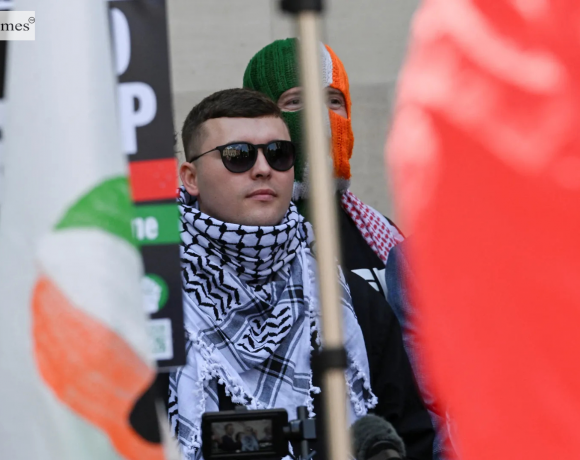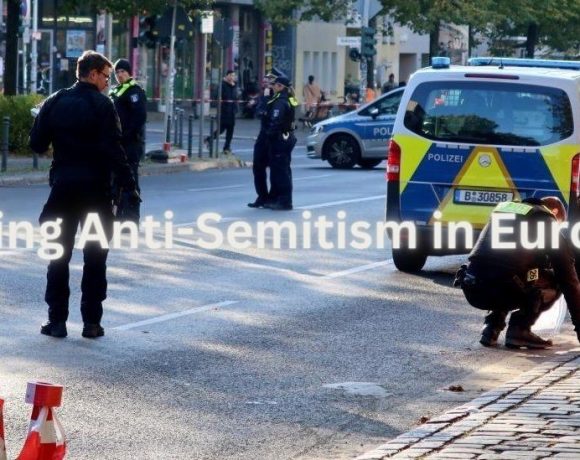
Hundreds of supporters gathered outside Westminster Magistrates’ Court in London on Wednesday as Liam Óg Ó hAnnaidh, better known by his stage name Mo Chara from the Irish rap group Kneecap, sought to dismiss a terrorism charge. The 27-year-old is accused of displaying Hezbollah’s yellow flag and shouting “Up Hamas, up Hezbollah” during a London gig on November 21, 2024. Kneecap maintain the flag was thrown onto the stage by the audience and that the case is an attempt to silence them.
Ó hAnnaidh, who appeared in court wearing a Palestinian keffiyeh scarf and accompanied by an Irish language interpreter, faces prosecution under the Terrorism Act, which makes it an offence to display symbols of proscribed organisations in a way that suggests support. His lawyers argue that the charge was filed too late, on May 22, one day past the six-month deadline. Prosecutors countered that it was formally brought on May 21, within the time limit, leaving Judge Paul Goldspring to decide.
The rapper’s bandmates, Móglaí Bap and DJ Próvaí, joined him in court as fans filled the public gallery. Kneecap, known for mixing Irish and English lyrics and voicing strong political stances, have openly supported the Palestinian cause and Irish republicanism. Since the charge, they have become increasingly vocal about the Gaza war, leading a 30,000-strong crowd at Glastonbury in chants against Prime Minister Keir Starmer and accusing Israel of war crimes—allegations Israel denies.
Pic Courtesy: google/ images are subject to copyright

